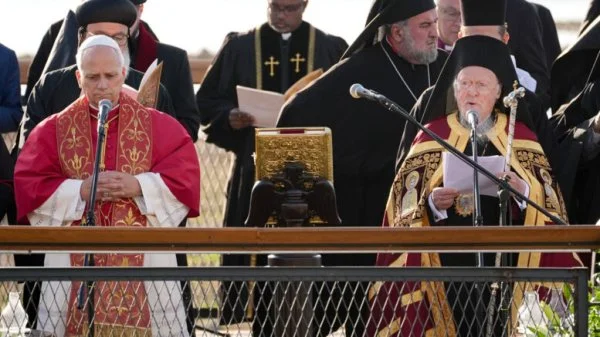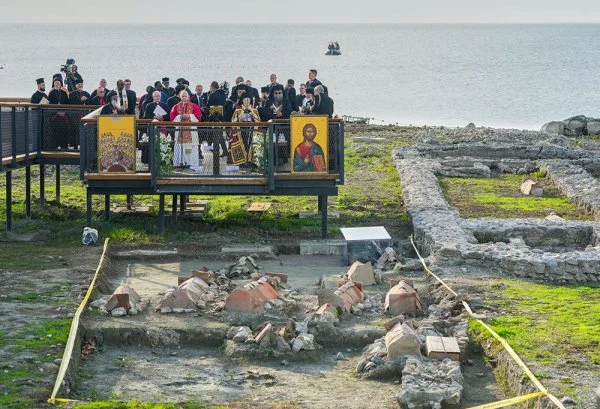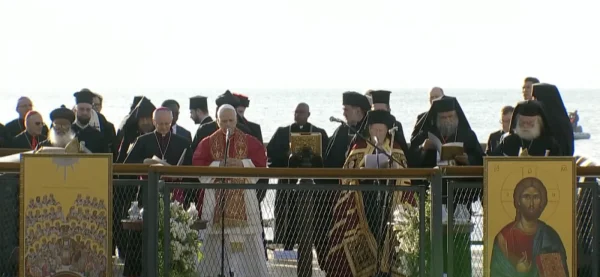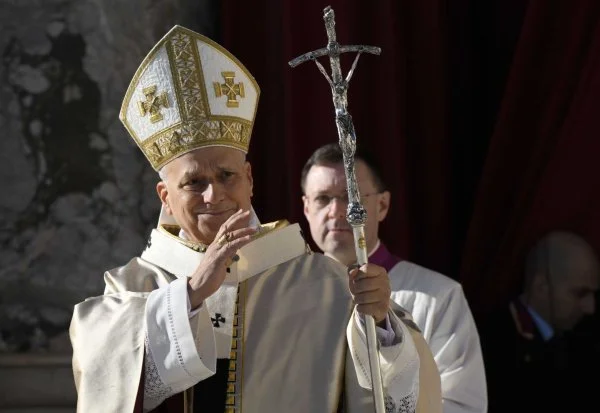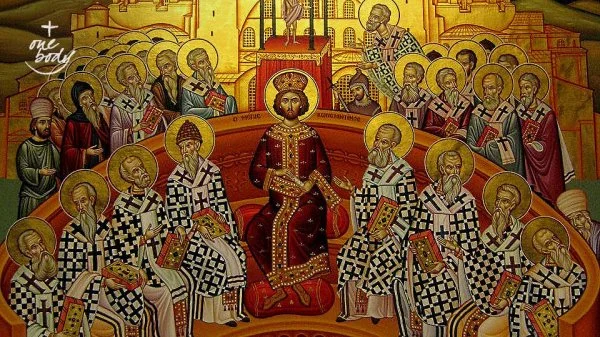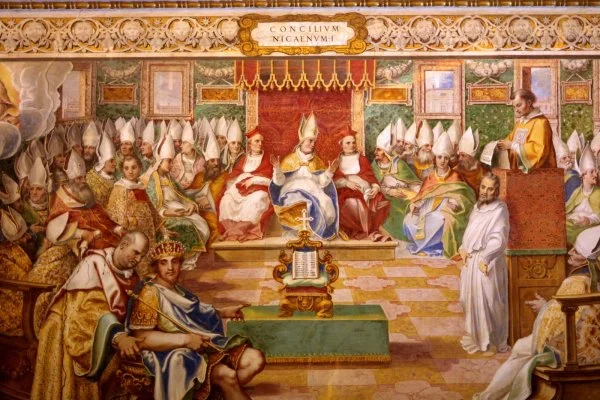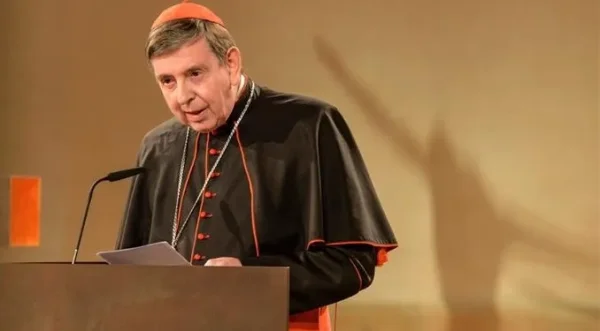- Français
- |
- Booklist
- |
- Week of Prayer
- |
- Links
- Areopagus - a forum for dialogue
- Academic journals
- Acronyms
- Bible tools
- Bibliographies
- Booksellers and publishers
- Churches
- Canadian church headquarters
- Directory of Saskatchewan churches
- Retreat centres
- Saskatchewan church and non-profit agencies
- Ecumenism.net Denominational links
- Anabaptist & Mennonite
- Anglican
- Baptist
- Evangelical
- Independent episcopal
- Lutheran
- Methodist, Wesleyan, and Holiness
- Miscellaneous
- Mormon
- Orthodox (Eastern & Oriental)
- Para-church ministries
- Pentecostal / charismatic
- Presbyterian & Reformed
- Quaker (Society of Friends)
- Roman & Eastern Catholic
- United and uniting
- Documents of Ecumenical Interest
- Ecumenical agencies
- Ecumenical Booklist
- Ecumenical Dialogues
- Glossary
- Human rights
- Inter-religious links
- Justice & peace
- Lectionaries
- Religious news services
- Resource pages
- Search Ecumenism.Net
- |
- Documents
- Ancient & Medieval texts
- Ecumenical Dialogues
- Interreligious
- Anabaptist & Mennonite
- Anglican
- Evangelical
- Lutheran
- Orthodox
- Reformed & Presbyterian
- Roman & Eastern Catholic
- United & Uniting
- Miscellaneous churches
- Canadian Council of Churches (CCC)
- Conference of European Churches (CEC)
- Interchurch Families International Network (IFIN)
- National Council of Churches in Australia (NCCA)
- Lausanne Committee for World Evangelism (LCWE)
- World Council of Churches (WCC)
- Other ecumenical documents
Church traditions
Documents from ecumenical agencies
- |
- Dialogues
- Adventist-Reformed
- African Instituted Churches-Reformed
- Anglican-Lutheran
- Anglican-Orthodox
- Anglican-Reformed
- Anglican-Roman Catholic
- Anglican-United/Uniting
- Baptist-Reformed
- Disciples of Christ-Reformed
- Disciples of Christ-Roman Catholic
- Evangelical-Roman Catholic
- Lutheran-Mennonite
- Lutheran-Mennonite-Roman Catholic
- Lutheran-Reformed
- Lutheran-Roman Catholic
- Mennonite-Reformed
- Mennonite-Roman Catholic
- Methodist-Reformed
- Methodist-Roman Catholic
- Oriental Orthodox-Reformed
- Orthodox-Reformed
- Orthodox-Roman Catholic
- Pentecostal-Reformed
- Prague Consultations
- REC-WARC Consultations
- Roman Catholic-Lutheran-Reformed
- Roman Catholic-Reformed
- Roman Catholic-United Church of Canada
- |
- Quick links
- Canadian Centre for Ecumenism
- Canadian Council of Churches
- Ecumenical Shared Ministries
- Ecumenism in Canada
- Interchurch Families International Network
- International Anglican-Roman Catholic Commission for Unity and Mission
- Kairos: Canadian Ecumenical Justice Initiatives
- North American Academy of Ecumenists
- Prairie Centre for Ecumenism
- Réseau œcuménique justice et paix
- Week of Prayer for Christian Unity
- Women's Interchurch Council of Canada
- World Council of Churches
- |
- Archives
- |
- About us
Archive for tag: Nicaea
Archive pour tag : Nicaea
Although the ancient city of Nicaea lies in ruins and the geographic centre of Christianity has shifted West, Pope Leo XIV and Christian leaders gathered at an archaeological site in Türkiye to celebrate the enduring faith set out in the Nicene Creed.
Orthodox Ecumenical Patriarch Bartholomew of Constantinople hosted the ecumenical prayer service and the common recitation of the Creed Nov. 28 at Iznik, site of the ancient Nicaea, about 80 miles southeast of Istanbul.
… Read more » … lire la suite »

 Permanent link: ecumenism.net/?p=14712
Permanent link: ecumenism.net/?p=14712
Categories: CNS • In this article: Bartholomew I, Nicaea, Nicene-Constantinopolitan Creed, Pope Leo XIV, Türkiye

 Lien permanente : ecumenism.net/?p=14712
Lien permanente : ecumenism.net/?p=14712
Catégorie : CNS • Dans cet article : Bartholomew I, Nicaea, Nicene-Constantinopolitan Creed, Pope Leo XIV, Türkiye
Seventeen centuries after bishops from East and West convened in Nicaea to craft the creed that defined Christianity, Pope Leo XIV returned to the ancient site with an appeal to “overcome the scandal of the divisions” that continue to fracture Christians today.
Marking the 1,700th anniversary of the Council of Nicaea — the centrepiece of his trip to Türkiye and Lebanon — the pope called on Christians the world over “to nurture the desire for unity for which the Lord Jesus prayed and gave his life.”
On his second day in Türkiye, he prayed alongside Ecumenical Patriarch Bartholomew, the spiritual leader of the world’s 300 million Orthodox Christians, on the shore of Lake Iznik — where the council that established a common creed for Christians convened 1,700 years ago.
… Read more » … lire la suite »

 Permanent link: ecumenism.net/?p=14706
Permanent link: ecumenism.net/?p=14706
Categories: NCR • In this article: Islam, Nicaea, Pope Leo XIV, Türkiye

 Lien permanente : ecumenism.net/?p=14706
Lien permanente : ecumenism.net/?p=14706
Catégorie : NCR • Dans cet article : Islam, Nicaea, Pope Leo XIV, Türkiye
In an historic commemoration of the 1700th anniversary of the First Ecumenical Council, faith leaders gathered in Nicaea—modern-day Iznik, Türkiye – on 28 November to mark the 1700th anniversary of the First Ecumenical Council in the history of the church.
World Council of Churches (WCC) general secretary Rev. Prof. Dr Jerry Pillay joined His All Holiness Patriarch Bartholomew and Pope Leo XIV for an ecumenical prayer service.
… Read more » … lire la suite »

 Permanent link: ecumenism.net/?p=14704
Permanent link: ecumenism.net/?p=14704
Categories: WCC News • In this article: Bartholomew I, Jerry Pillay, Nicaea, Nicene-Constantinopolitan Creed, Pope Leo XIV, Türkiye

 Lien permanente : ecumenism.net/?p=14704
Lien permanente : ecumenism.net/?p=14704
Catégorie : WCC News • Dans cet article : Bartholomew I, Jerry Pillay, Nicaea, Nicene-Constantinopolitan Creed, Pope Leo XIV, Türkiye
At the heart of Pope Leo XIV’s journey to Türkiye this weekend will be a pilgrimage to Iznik, a small city about 140 km south of Istanbul. Iznik is better known to Church history by its Greek name, Nicaea. That’s where, 1700 years ago, the First Ecumenical Council was held. This Friday, Pope Leo is gathering with Ecumenical Patriarch Bartholomew I and other Christian leaders for an ecumenical prayer service to celebrate the landmark anniversary.
… Read more » … lire la suite »

 Permanent link: ecumenism.net/?p=14702
Permanent link: ecumenism.net/?p=14702
Categories: News, Opinion • In this article: Bartholomew I, Nicaea, Nicene-Constantinopolitan Creed, Pope Leo XIV

 Lien permanente : ecumenism.net/?p=14702
Lien permanente : ecumenism.net/?p=14702
Catégorie : News, Opinion • Dans cet article : Bartholomew I, Nicaea, Nicene-Constantinopolitan Creed, Pope Leo XIV
When Christians recite the Creed, it should prompt an examination of conscience about what they truly believe and what kind of example of faith in God they give to others, Pope Leo XIV wrote.
“Wars have been fought, and people have been killed, persecuted and discriminated against in the name of God,” he wrote. “Instead of proclaiming a merciful God, a vengeful God has been presented who instills terror and punishes.”
… Read more » … lire la suite »

 Permanent link: ecumenism.net/?p=14688
Permanent link: ecumenism.net/?p=14688
Categories: CNS • In this article: Nicaea, Nicene-Constantinopolitan Creed, Pope Leo XIV

 Lien permanente : ecumenism.net/?p=14688
Lien permanente : ecumenism.net/?p=14688
Catégorie : CNS • Dans cet article : Nicaea, Nicene-Constantinopolitan Creed, Pope Leo XIV
In his book, Border Lines: The Partition of Judaeo-Christianity, Daniel Boyarin presents the parting of the ways as two sibling traditions born from the same mother (that is, second Temple Judaism, in all its diversity) and gradually developing apart over a long and complicated historical and cultural process, almost the way different languages emerge from their root mother – French and Italian from Latin, for instance, though intervening languages like Provencal, Occitan, or Romansch complicate a simplistic either/or picture.
… Read more » … lire la suite »

 Permanent link: ecumenism.net/?p=14676
Permanent link: ecumenism.net/?p=14676
Categories: News, Opinion • In this article: Jewish-Christian relations, Nicaea, Orthodox

 Lien permanente : ecumenism.net/?p=14676
Lien permanente : ecumenism.net/?p=14676
Catégorie : News, Opinion • Dans cet article : Jewish-Christian relations, Nicaea, Orthodox
“We believe.” These are the first words of the original Nicene Creed, written 1,700 years ago at the Council of Nicaea. This ecumenical council in 325 AD produced a summary statement of Christian belief that has been professed by Christians around the world ever since. Both for its longevity and its universal appeal, the Nicene Creed stands apart from every other statement of Christian belief. It also has a profound ecumenical significance, which I explored in January’s One Body article, Do You Believe This?
At the end of November, Pope Leo XIV is expected to visit Nicaea with Orthodox Patriarch Bartholomew. Each year, the pope and patriarch send delegations to the other to celebrate their patronal feasts of Sts. Peter and Paul in Rome on June 29 and St. Andrew in Constantinople (Istanbul) on November 30. This year, in the modern city of Iznik, where Nicaea once was, the two leaders will together commemorate the 1,700th anniversary of the first ecumenical council. They will also commend the church to continue in the dialogue of life and love begun at the end of the Second Vatican Council.
… Read more » … lire la suite »

 Permanent link: ecumenism.net/?p=14650
Permanent link: ecumenism.net/?p=14650
Categories: One Body, Opinion • In this article: Nicaea, Nicaea 2025, Nicene-Constantinopolitan Creed, WCC Commission on Faith and Order

 Lien permanente : ecumenism.net/?p=14650
Lien permanente : ecumenism.net/?p=14650
Catégorie : One Body, Opinion • Dans cet article : Nicaea, Nicaea 2025, Nicene-Constantinopolitan Creed, WCC Commission on Faith and Order
When Jesus comes to Mary and Martha in Bethany after the death of Lazarus, he says to Martha “I am the resurrection and the life. Those who believe in me, even though they die, will live, and everyone who lives and believes in me will never die.” And then he asks her, “Do you believe this?” Martha responds, “Yes, Lord, I believe that you are the Messiah, the Son of God, the one coming into the world” (John 11:25-27). This exchange prepares us for the miracle of the raising of Lazarus: one who believed, yet even though he died, he lived. Like Lazarus, we who believe, even though we will die, will be raised by Jesus into eternal life.
“Do you believe this?” Jesus’ question puts us on the spot. Our belief, or profession of faith, determines whether we will inherit eternal life. At the same time, in other passages in the Gospels, Jesus reminds us that love of God is the greatest commandment, “and the second is like it,” to love our neighbour as ourselves (Matthew 22:37-39; Mark 12:30-31). “Truly I tell you, just as you did not do it to the least of these [the hungry, thirsty, stranger, naked, or imprisoned], you did not do it to me” (Matthew 25:45).
In every time, every place, and every way, Christians are called to profess their faith in Christ. Faith in God cannot be limited to simple dogmatic formulas but must embrace our whole heart, soul, and mind (Matthew 22:36; Mark 12:30). Faith compels us to order our lives in conformity with Christ’s command to care for the hungry, thirsty, stranger, naked, and imprisoned. What we have done or left undone exposes the imperfections of our profession of faith. So, Jesus’ question “Do you believe this?” is weighted with enormous significance for our lives in this world and the next.
… Read more » … lire la suite »

 Permanent link: ecumenism.net/?p=14466
Permanent link: ecumenism.net/?p=14466
Categories: One Body, Opinion • In this article: Nicaea, Nicholas Jesson, statements of faith, WCC Commission on Faith and Order, WPCU

 Lien permanente : ecumenism.net/?p=14466
Lien permanente : ecumenism.net/?p=14466
Catégorie : One Body, Opinion • Dans cet article : Nicaea, Nicholas Jesson, statements of faith, WCC Commission on Faith and Order, WPCU
The Arians believed that Jesus was a created being and not fully divine; these ideas were condemned at Nicaea in 325, but continue to resurface. The hope of the former preacher to the papal household is that this seventeenth centenary year will see a reawakening of faith in the divinity of Christ and in the trinity of God.
The year 2025 marks the seventeenth centenary of the Ecumenical Council held in the city of Nicaea (now Iznik, Turkey) in the early months of 325. The creed sanctioned by that council unites Christians of the historic Churches – Catholic, Orthodox, Lutheran, Calvinist, Anglican – and the various denominations that go under the name of “Evangelical” and “Pentecostal”. This centenary provides us with a unique opportunity – one that only at this point in history are we able to grasp – to acknowledge and celebrate together the faith that unites all believers in Christ.
It also offers us another, no less important opportunity: to take a reconnaissance flight that looks at faith in Christ in the modern and post-modern world and compares where we stand today to the faith of Nicaea. In the aftermath of a local council held in Rimini in 359, dominated by opponents of Nicaea, St Jerome wrote: “The whole world groaned and was astonished to find itself Arian.” We must ask ourselves whether, by chance, we have an even greater reason today to let out such a groan.
… Read more » … lire la suite »

 Permanent link: ecumenism.net/?p=14479
Permanent link: ecumenism.net/?p=14479
Categories: Tablet • In this article: Catholic, dialogue, Evangelical, Nicaea, Orthodox, Raniero Cantalamessa

 Lien permanente : ecumenism.net/?p=14479
Lien permanente : ecumenism.net/?p=14479
Catégorie : Tablet • Dans cet article : Catholic, dialogue, Evangelical, Nicaea, Orthodox, Raniero Cantalamessa
The Lutheran World Federation (LWF) and the Orthodox Church have issued a joint statement on the addition of the Filioque clause to the Nicene-Constantinopolitan Creed, a theological issue that has divided the Eastern and Western Church traditions for almost a thousand years.
The word ‘filioque’ (‘and the Son’ in English) to describe the procession of the Holy Spirit, was added by the Latin Church to the Creed centuries after its composition to counter Arianism but the Eastern Church has always protested this insertion.
In a Common Statement of the Joint International Commission on Theological Dialogue between the LWF and the Orthodox Church, both partners “suggest that the translation of the Greek original (without the Filioque) be used in the hope that this will contribute to the healing of age-old divisions between our communities and enable us to confess together the faith of the Ecumenical Councils of Nicæa (325) and Constantinople (381).”
… Read more » … lire la suite »

 Permanent link: ecumenism.net/?p=14335
Permanent link: ecumenism.net/?p=14335
Categories: Dialogue, Lutheran World Information • In this article: 1700th anniversary, filioque, Lutheran World Federation, Nicaea, Nicene-Constantinopolitan Creed, Orthodox

 Lien permanente : ecumenism.net/?p=14335
Lien permanente : ecumenism.net/?p=14335
Catégorie : Dialogue, Lutheran World Information • Dans cet article : 1700th anniversary, filioque, Lutheran World Federation, Nicaea, Nicene-Constantinopolitan Creed, Orthodox
The World Council of Churches (WCC) is planning a year of activities in 2025 to mark the 1,700th anniversary of the first Ecumenical Council at Nicaea in 325, a key moment in the history of Christian faith and for the ecumenical journey today.
“The anniversary offers an opportunity to celebrate and reflect on the outpouring mission of God’s triune love and the implications this has for the common witness and service of the churches, it gives us the opportunity to ask afresh with others what Nicaea means for us today.” said WCC general secretary Rev. Prof. Dr Jerry Pillay.
The first Ecumenical Council was a gathering of Christian bishops in Nicaea, now İznik in present-day Türkiye, as the first attempt to reach consensus in the church through an assembly representing all of Christendom.
“Then, as now, the call to unity was heard within the context of a troubled, unequal, and divided world,” recalled Pillay.
… Read more » … lire la suite »

 Permanent link: ecumenism.net/?p=13737
Permanent link: ecumenism.net/?p=13737
Categories: WCC News • In this article: 1700th anniversary, Nicaea, WCC, WCC Commission on Faith and Order

 Lien permanente : ecumenism.net/?p=13737
Lien permanente : ecumenism.net/?p=13737
Catégorie : WCC News • Dans cet article : 1700th anniversary, Nicaea, WCC, WCC Commission on Faith and Order
“If there is no resurrection of the dead, neither is Christ risen! But if Christ is not risen, then our preaching is empty, your faith also empty “(1 Cor 15:13 ff). With these words, the apostle Paul affirms with absolute clarity that the Christian faith stands or falls with the paschal mystery. The early Church condensed this fundamental conviction in the formula: “Take away the resurrection and you will immediately destroy Christianity.” Given the central importance of the paschal mystery in the Christian faith, it is understandable that Christians wish to celebrate it on a common date.
… Read more » … lire la suite »

 Permanent link: ecumenism.net/?p=12648
Permanent link: ecumenism.net/?p=12648
Categories: News, Opinion • In this article: Date of Easter, Dicastery for Promoting Christian Unity, Kurt Koch, Nicaea

 Lien permanente : ecumenism.net/?p=12648
Lien permanente : ecumenism.net/?p=12648
Catégorie : News, Opinion • Dans cet article : Date of Easter, Dicastery for Promoting Christian Unity, Kurt Koch, Nicaea
The hope that all Christians will be able to celebrate Easter on the same day in the future was reaffirmed by an international ecumenical seminar organized by the Institute of Ecumenical Studies at the Ukrainian Catholic University in Lviv, 15 May.
read the full story …
… Read more » … lire la suite »

 Permanent link: ecumenism.net/?p=573
Permanent link: ecumenism.net/?p=573
Categories: WCC News • In this article: Date of Easter, Nicaea

 Lien permanente : ecumenism.net/?p=573
Lien permanente : ecumenism.net/?p=573
Catégorie : WCC News • Dans cet article : Date of Easter, Nicaea
Lebanon-based Armenian Orthodox leader Aram I has at a Vatican meeting with Pope Benedict XVI proposed that the world’s churches set a common date for Easter, when Christians celebrate the resurrection of Jesus.
… Read more » … lire la suite »

 Permanent link: ecumenism.net/?p=529
Permanent link: ecumenism.net/?p=529
Categories: ENI • In this article: Aram I, Date of Easter, Nicaea

 Lien permanente : ecumenism.net/?p=529
Lien permanente : ecumenism.net/?p=529
Catégorie : ENI • Dans cet article : Aram I, Date of Easter, Nicaea


